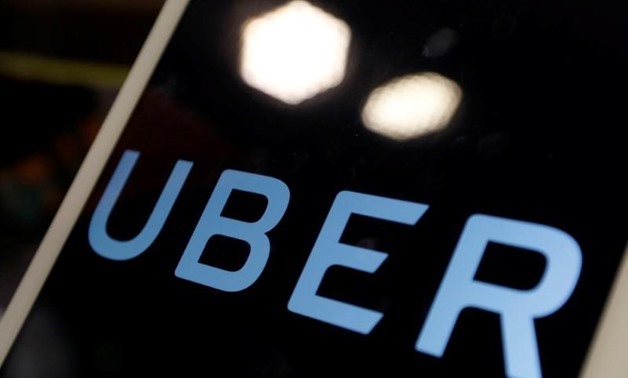
The logo of Uber is seen on an iPad, during a news conference in Taipei, Taiwan April 13, 2017 - REUTERS-Tyrone Siu
CAIRO - 8 April 2018: The Cairo Court of Urgent Matters ruled on Saturday to annul the Cairo Administrative Court's verdict suspending the license of the two largest ride-hailing applications in Egypt, Uber and Careem.
The two companies applied to this court, which allowed them to operate until a final decision from the Highest Administrative Court is issued. But questions then started to arise on the legality of the rule and whether the Court of Urgent Matters have jurisdiction to annul this verdict.
 View of Egypt's High Court of Justice in Cairo - REUTERS/Mohamed Abd El Ghany
View of Egypt's High Court of Justice in Cairo - REUTERS/Mohamed Abd El Ghany
Director of the Cairo Center for Political and Legal Studies Ahmed Mahran told Egypt Today that the rule of the Court of Urgent Matters is neither constitutional nor legal. “This rule is considered a breach to the jurisdictions of the Administrative court,” he said.
The Administrative Court is specialized in ruling in these cases as long as one of the parties of the case is the government. As for the Court of Urgent Matters, it is not to rule in administrative cases, and has no authority to suspend or rule the validity of the other courts’ rules, he added, explaining that the Court of Urgent Matters is lower in rank than the Administrative Court and thereby has no jurisdiction over the matter.
Mahran explained saying that “the judiciary system in Egypt is divided into Administrative Judiciary and Ordinary Judiciary; both of them have complete different jurisdiction.”
“The same happened in Tiran and Sanafir case; the Supreme Constitutional Court (SCC) eventually issued its ruling in the legal jurisdiction dispute between the State courts in favor of the Administrative Court rule,” he stated.
In the Tiran and Sanafir case, the Cairo Court for Urgent Matters nullified the Supreme Administrative Court’s final ruling declaring the transfer of the Red Sea islands to Saudi Arabia as void.
The case on Uber and Careem began in February 2017 when 42 traditional taxi drivers filed a case against U.S.-based Uber and its Dubai-based competitor Careem, accusing them of violating the traffic law by using privately-owned vehicles for commercial purposes. They also claimed that the two firms were registered as a call center and an internet company, respectively. The case was filed against the two operators as well as the government.
Taxi drivers have filed the case out of anger because they are losing clients to both services, as many people are opting to use the two apps to commute in the capital and other cities. They claimed that they had lost huge amounts of money and that their profits decreased.
According to lawsuits previously filed by taxi drivers, the GPS-based applications Uber and Careem use unlicensed private cars as taxis and thus profit from “illegal” activity.
Taxi drivers also mentioned that the two services are not legally regulated and affected the livelihoods of other taxi drivers who do not work with these application-based services.
The Cairo Administrative Court ordered in March the suspension of the two companies’ licenses in Egypt. The government appealed against the March ruling before the Highest Administrative Court did.
The two companies continued to operate normally without halting any of their activities in Egypt.
Uber General Manger Abdel Latef Waked told Egypt Today that they are willing to appeal the judicial ruling and, in the meantime, continue to operate normally without halting any of their activities in Egypt. He explained that accepting the lawsuit does not mean banning their activities at the current time.
Careem said it had not received any official request to stop operations in Egypt, and continued to do business as normal.


Comments
Leave a Comment